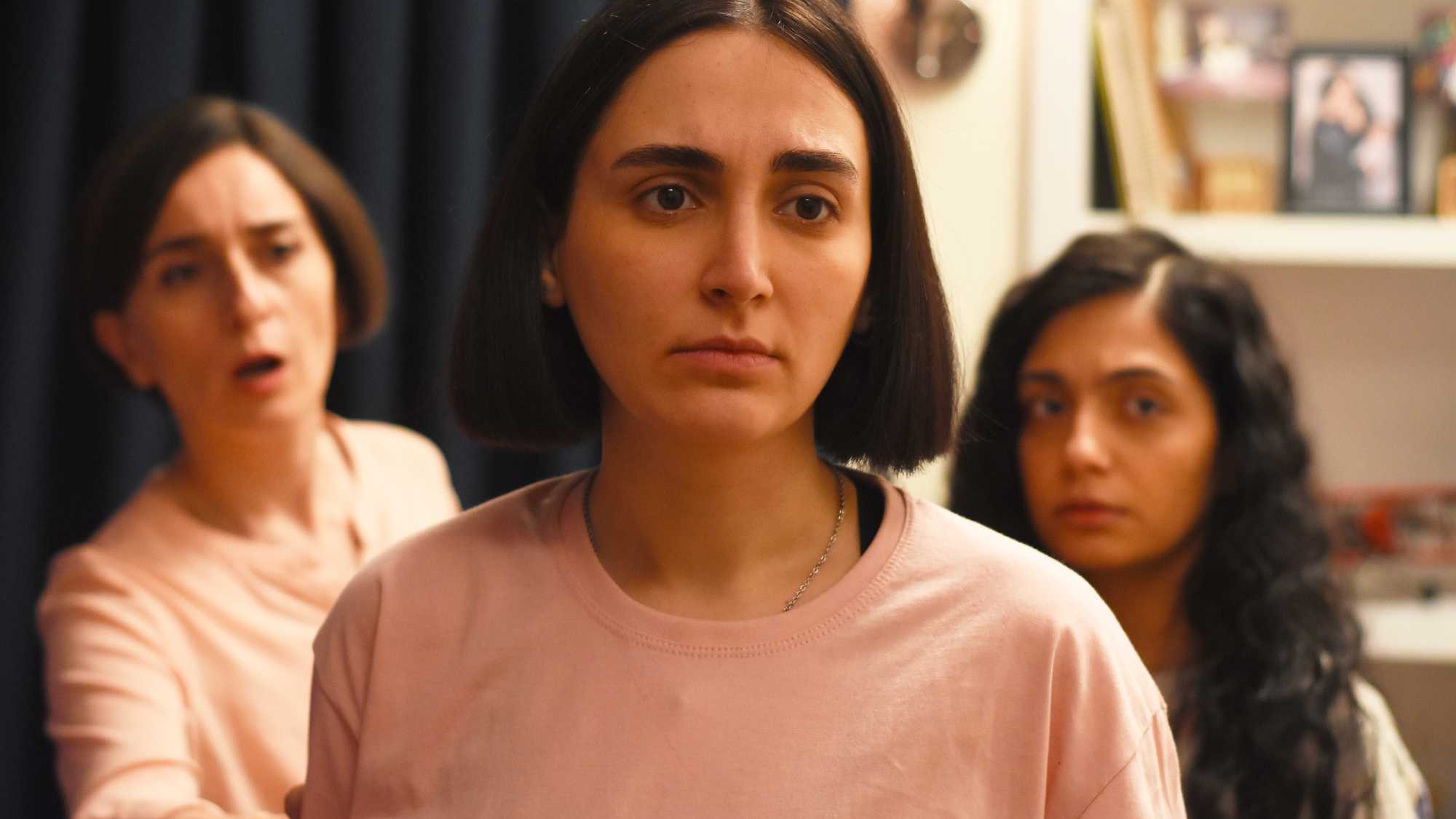A conflicted family implodes as protests spread throughout Iran, Mohammad Rasoulof’s courageous and urgent film delivers a bold middle finger to the totalitarian regime of his homeland.

Rasoulof crafts an extraordinarily gripping allegory about the corrupting costs of power and the suppression of women under a religious patriarchy that crushes the very people it claims to protect.
Screened as part of 2024
The Seed of the Sacred Fig 2024
| Aug 30 | | ||
| Sep 01 | |
The Seed of the Sacred Fig received the longest and most emotional standing ovation at the Cannes this year. Director Mohammad Rasoulof, winner of the 2020 Best Film at Berlin for There Is No Evil, daringly escaped Iran to attend the premiere, after being sentenced to a flogging and eight years in jail. Many believe that his exceptionally brave film, possibly the most explicitly political cinematic work out of contemporary Iran, should have won the Palme d’Or.
Rasoulof cannily takes an oblique look at the protests that erupted following the death of Mahsa Amini at the hands of Iran’s so-called morality police. He zooms in on the shockwaves that the protests send straight into the household of Iman, an inspector of the Revolutionary Court. A man with the power to prosecute political opponents directly. His wife and two daughters are directly and deeply affected, and the family cannot cope with the growing paranoia and distrust that the events outside are causing within their relationships.
Starting as an oppressive, almost claustrophobic family drama featuring real footage from the protests, The Seed of the Sacred Fig unexpectedly morphs into a breathtaking thriller with allegorical undertones and an unforgettable, cathartic finale. — Paolo Bertolin
“The situation Rasoulof depicts is hardly limited to Iran. There are echoes of Nazi Germany and modern-day China in the way average citizens submit, while the pressures to inform on one’s neighbors recall pre-perestroika Soviet policies. Rasoulof’s genius comes in focusing on how this dynamic plays out within a family, which makes it personal. Early on, Iman hesitates to comply with an order that conflicts with his ideals. By the nail-biting finale of this masterful allegory, decades of compromise have eroded what he stands for, threatening to bury him and the authoritarian system he represents.” — Peter Debruge, Variety